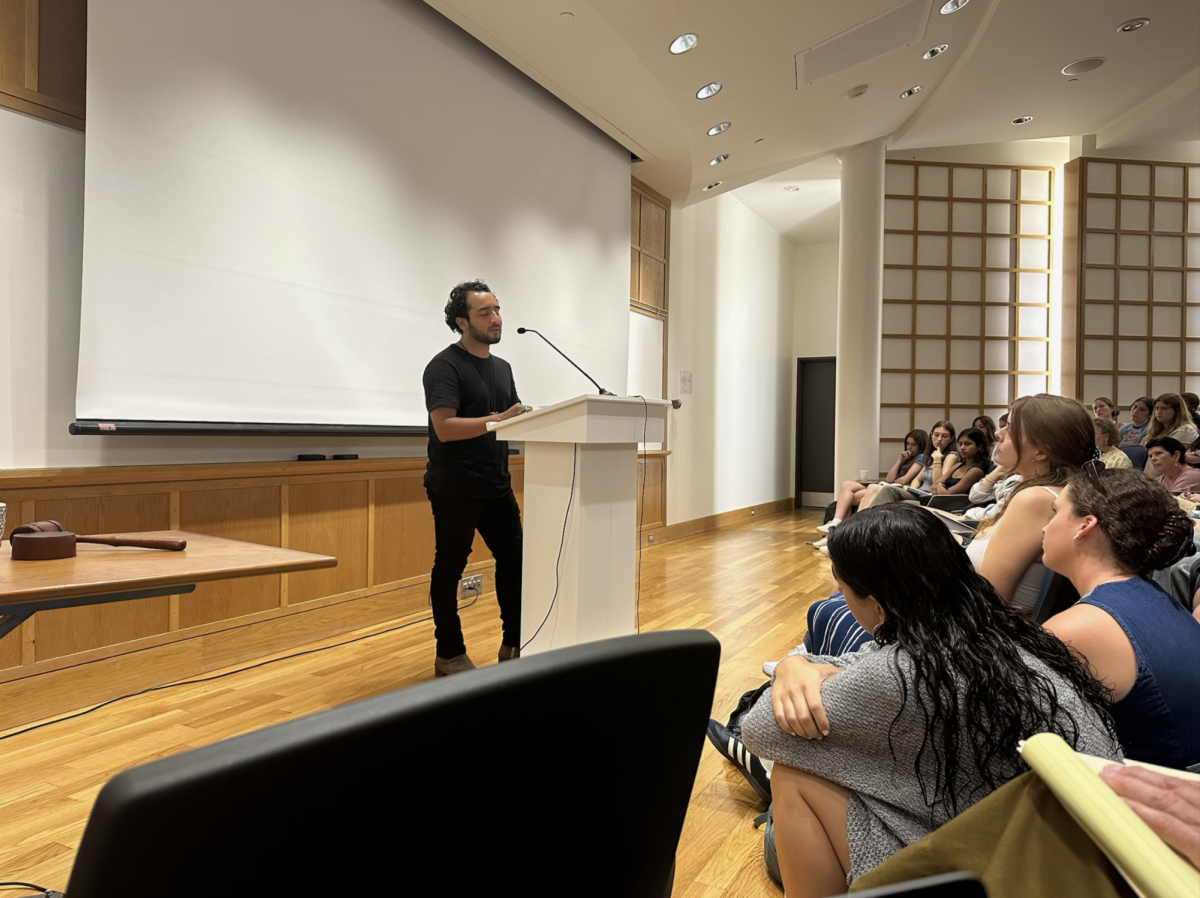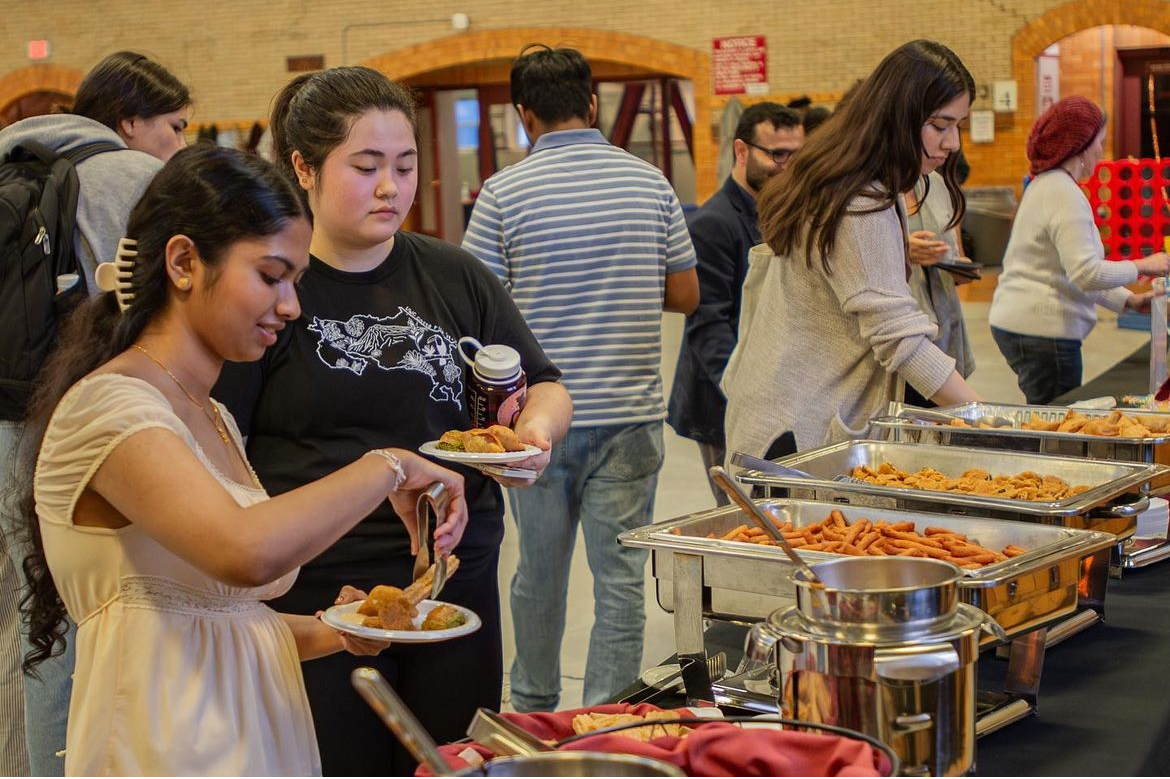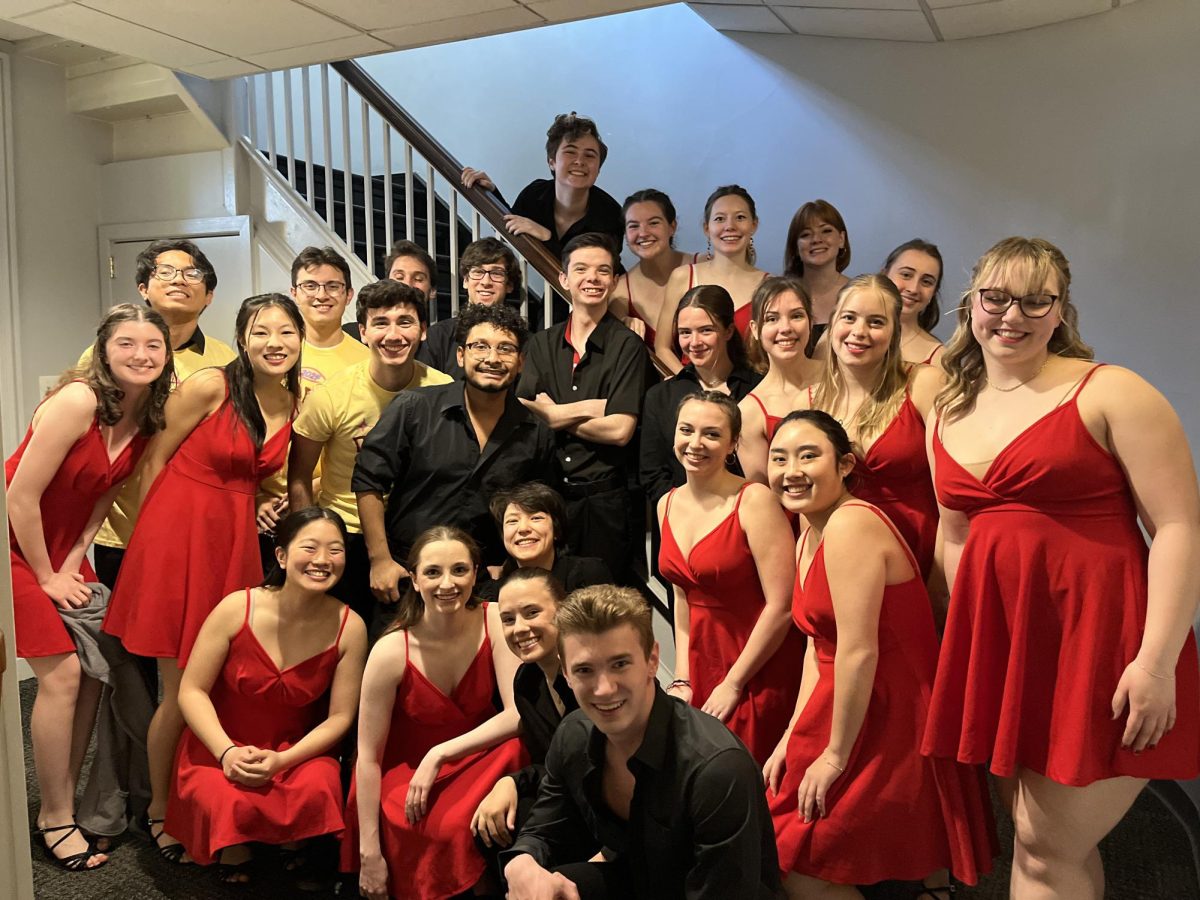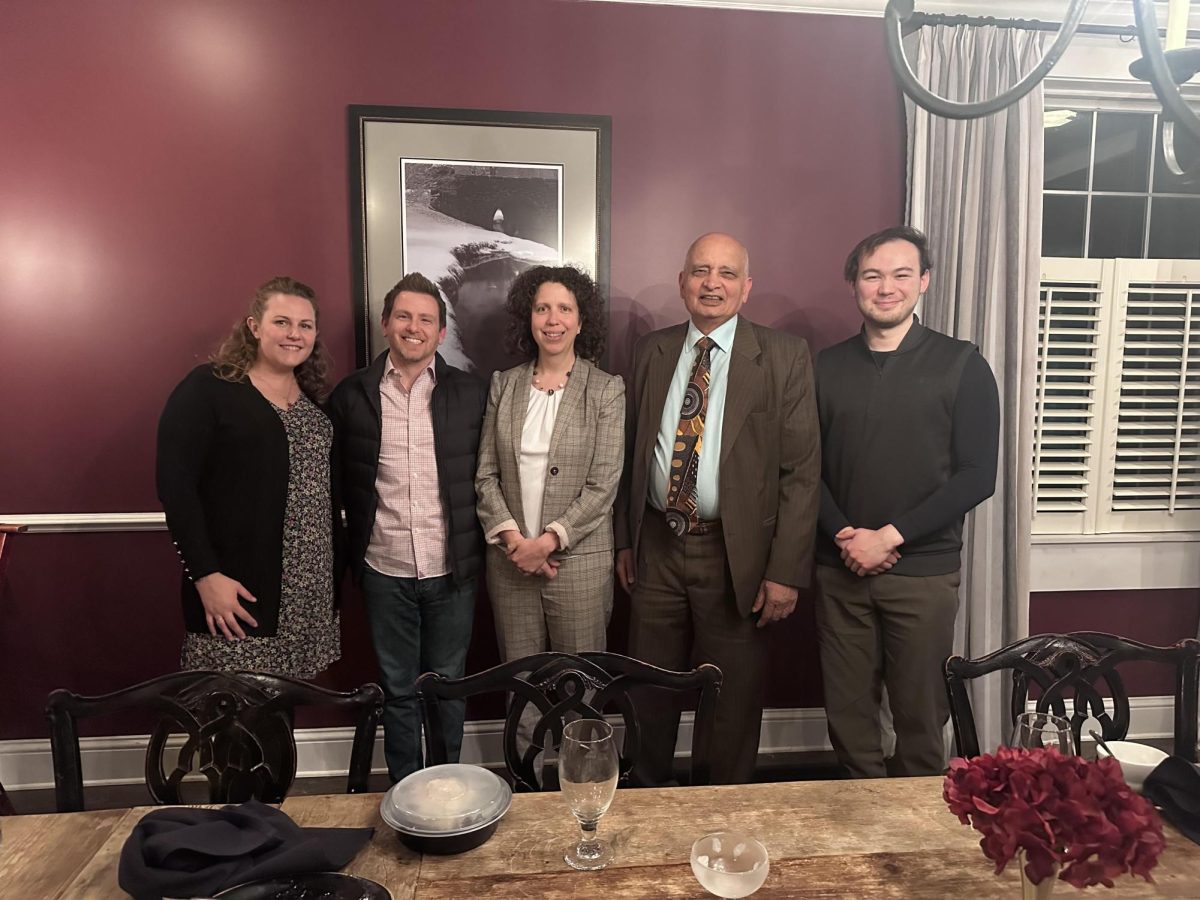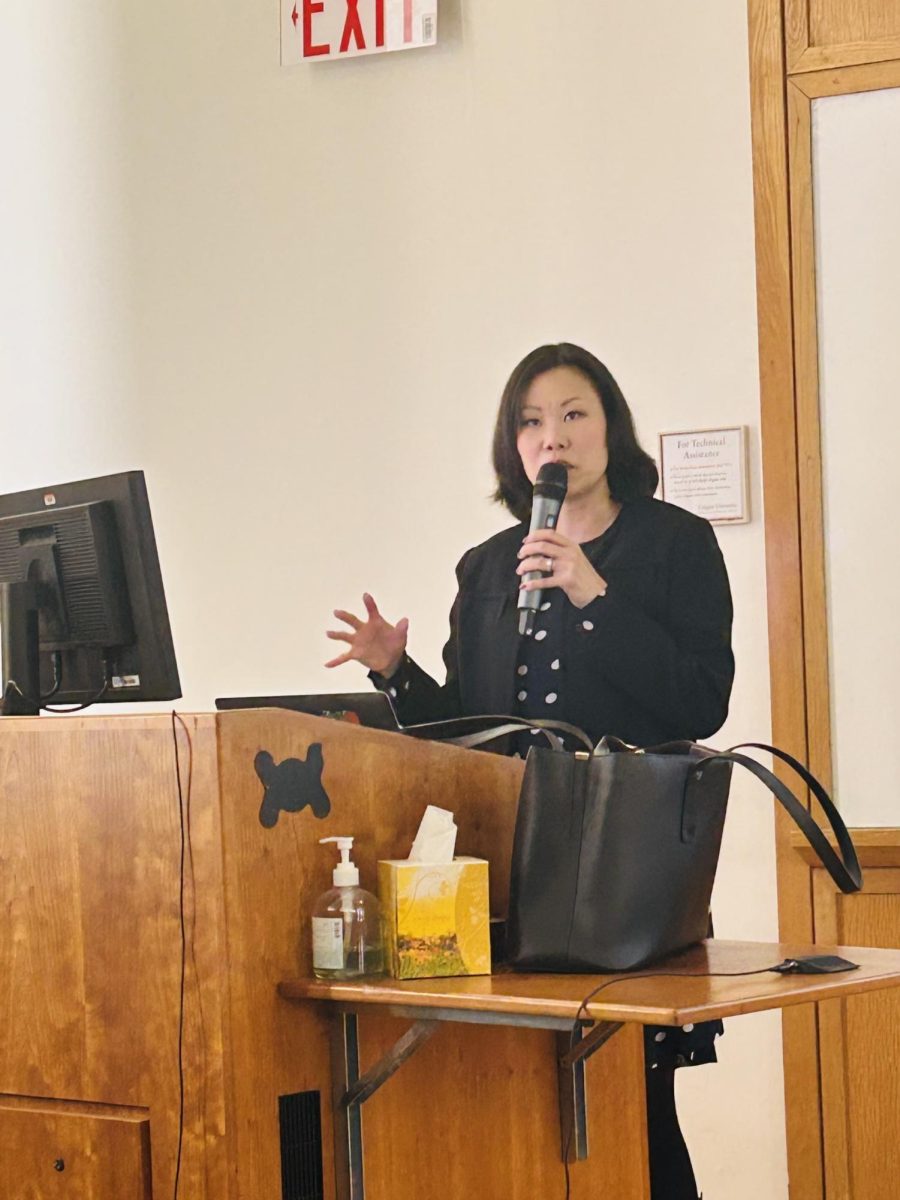Colgate University’s discussion event with Javier Zamora on Thursday, Sept. 7 was the first in the 2023 Living Writers presentation series celebrating modern authors who grapple with the theme of home.
A collaboration between numerous Colgate departments, Living Writers offers attendees the chance to explore modern works of literature outside of the classroom. Academic Department Coordinator for the Department of English and Creative Writing Tess Jones explained the intentions behind Living Writers.
“Founded 40 years ago by the novelist and professor Frederick Busch, Living Writers is a signature program of Colgate University,” Jones said. “It’s both a for-credit course — ENGL 360 — offered every fall for 50 undergraduates, and a companion program for alumni, parents, community members and friends of Colgate.”
Javier Zamora’s memoir “Solito” was born of necessity. Although not immediately willing to share his story with the world or to acknowledge it himself, Javier Zamora spoke openly of his pilgrimage to the United States from his home country of El Salvador in 1999, when he was only nine years old.
Zamora’s speech elicited a large turnout. The auditorium seats were filled before the event started and many people watched from the aisles, with a majority of the audience staying afterward to purchase Zamora’s memoir.
During his speech, Zamora explained that his decision to write a memoir came after years of assimilation, therapy and self-reflection, before which he had chosen to deny his past. Zamora described how this refusal to face his trauma did more harm than good.
“I had been running away from that little boy [from 1999]. I was afraid of him. I was ashamed of him,” Zamora said. “We have this phrase in English of having to walk in other people’s shoes; I hadn’t walked in my own shoes.”
Zamora was still hesitant to share his experience after he began considering writing a memoir.
“I didn’t care about my own story. I was just trying to convince U.S. citizens that I mattered,” Zamora said. “I was imagining a reader who doesn’t want me in this country, and I don’t want to write toward that reader.”
Eventually, through his writing, Zamora began to find peace.
“[The memoir] helped me get to know myself. I’ve been able to heal,” Zamora said.
Zamora noted that he is often asked how it is that he can remember with such clarity the odyssey of his pilgrimage.
“Everybody’s brain works differently when they experience trauma. My brain chose to remember […] Those scenes which are hardest to read were easiest to write,” Zamora said.
But compiling a memoir of an experience from nine years ago was not without its challenges.
“The parts of the book that were hardest to write were the boring parts,” Zamora said. “In my research I had to look at the temperature, at the phases of the moon […] My brain didn’t focus as much [on the boring parts]: it could breathe.”
For Zamora, keeping his experiences authentic meant implementing a mix of both English and Spanish.
“There are some words that just sound better in Spanish than in English,” Zamora said. “A lot of it’s untranslatable — it’s a way to keep the emotion close to the heart.”
Because “Solito” is the first book written in English by a Salvadoran, Zamora had to remain faithful to not only the culture itself but also the era. The Spanish that Zamora’s parents spoke before they left for the United States in the early 1990s — the Spanish that they brought to the United States — has already become outdated in El Salvador.
“It was of the utmost importance to use ‘our Spanish,’” Zamora said. “The Spanish that you speak becomes a time capsule.”
Independent of maintaining linguistic authenticity, Zamora had to ensure that the narratives of those traveling with him were kept alive. When an audience member asked whether or not he had been able to reconnect with any of The Six, a term Zamora had coined in reference to the group of six that had trekked through Guatemala with him, Zamora smiled.
“My biggest fear was that I wasn’t going to get the people I owe my life to […] right,” Zamora said.
As for whether or not he had actually encountered any of his posse in the United States, Zamora said that he had stopped searching. Despite being contacted by head hunters, who have offered their services pro bono, Zamora said he is content with waiting for the others to make the first move.
“We’re talking about trauma; I’ve had the privilege to have turned my healing into my job,” Zamora said.“[Reaching out] would be taking their agency away; in a way, I would be re-traumatizing them.”
Sophomore Morgan Morel reflected on the event, drawing parallels with novels and memoirs that she had read in school.
“I thought [the talk] was really cool,” Morel said. “I think it’s really interesting to hear the stories of different immigrants and people who have come to the U.S.”


